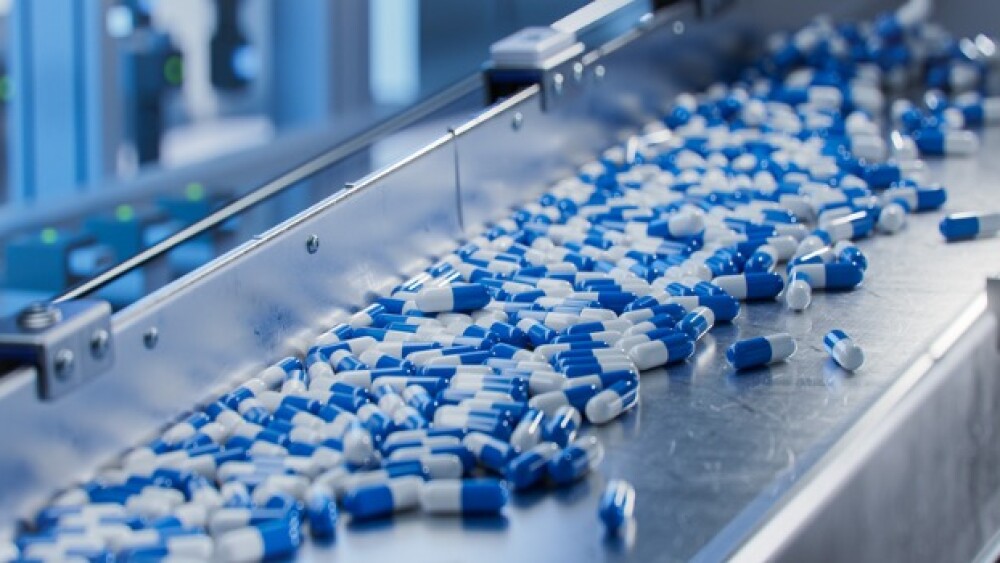A new study provides the first empirical evidence that the not-for-profit manufacturer’s business model can lead to robust drug supplies and lower medicine costs.
Pictured: Capsules in a production line at a pharmaceutical manufacturing plant/iStock, SweetBunFactory
Not-for-profit drug manufacturer Civica Rx has successfully improved drug supply security and reduced costs, according to an analysis published Wednesday in NEJM Catalyst.
The study found that Civica’s model was able to boost access to generic drugs compared to wholesalers. Between 2020 and 2022, Civica achieved 96% fulfillment of its contractually guaranteed volume, while wholesalers only reached an order fulfillment rate of 86%. The difference was statistically significant, according to the analysis.
In addition, Civica’s reserve product supply allowed for a further 43% access benefit. Meanwhile, wholesaler prices at the order level were around 46% above Civica’s prices for the same product.
Even when buyers optimized their wholesaler orders by purchasing in bulk when prices were low, Civica still had more affordable products, though the cost-savings gap shrunk to 2.7% in aggregate.
The study’s authors contend that their analysis “provides the first empirical evidence” that Civica’s approach is working.
“The results of this study are very encouraging for patients and health systems,” study author Carter Dredge said in a statement. “The innovation of Civica is not technological but rather structural: a new business model that injects a new type of supplier into a decades-old market for generic drugs in order to address a market failure.”
Dredge is a co-founder of Cambridge Judge Business School’s Healthcare Utility Initiative and senior vice president and lead futurist at SSM Health, one of Civica’s founding health systems.
Founded by seven U.S. health systems and three philanthropic organizations, Civica launched in 2018 with two main goals: to guarantee a robust and consistent supply of generic drugs and to cut prices by around 20%. At launch, Civica was initially focused on 14 generics that are often in high demand and are prone to shortages.
The not-for-profit drugmaker set out to achieve this goal by partnering with hospitals to accurately gauge their specific needs for generic medicines. The company is also working with FDA-approved manufacturers and will prioritize the production or procurement of drugs in accordance with the hospitals’ needs.
In January 2019, driven by strong interest from the healthcare system, Civica announced that it was bumping its initial roster up to 20 generic medicines, with the potential to expand to 100 drugs in the next three to five years.
Currently, Civica is working to manufacture three insulins—Sanofi’s Lantus (glargine), Lilly’s Humalog (lispro) and Novo’s NovoLog (aspart)—in pen and vial form, and offer these at “one low, transparent price,” according to its website. The company aims to launch these products in 2024.
Tristan Manalac is an independent science writer based in Metro Manila, Philippines. He can be reached at tristan@tristanmanalac.com or tristan.manalac@biospace.com.






